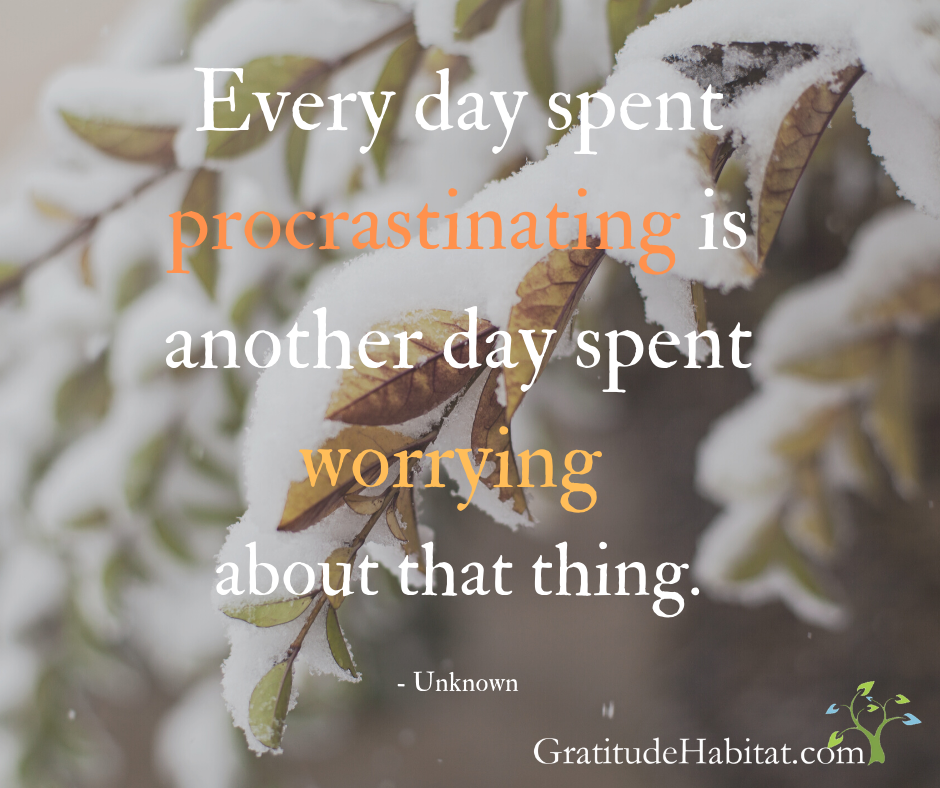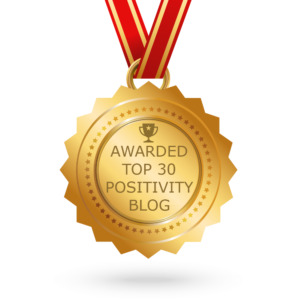Living in Gratitude: The Emotion of Procrastination
We all know someone who is a master procrastinator, the person whose mantra should be, “I have not yet begun to procrastinate.” That someone might even be us.
The classic thought behind people who postpone projects, errands, or any variety of things is that they simply don’t have a grasp on managing their time.
But a new school of thought on procrastination is emerging.
Psychologists are discovering that putting things off is much more of an emotional response than a lack of managing time.
The things we avoid doing are ones that evoke negative emotions that we don’t want to feel.
Boredom
Fear of failure
Nervousness
Feeling overwhelmed
Stress
Worry
Rather than tackling whatever the task is, we find something else to do that makes us feel good. So instead, we text a friend, start scrolling through Facebook or Instagram, or embark on binge-watching YouTube videos.
The problem with procrastination is, those uplifting emotions we feel by avoiding a task or project are short-lived. More often than not, we end up feeling guilty because we’ve put off something we should have been doing. And then, the stress begins to ramp up as we’ve wiled away (a lot) of time we could have used to complete that work project or cross off important items on our To Do list.
Chronic procrastination is connected to adverse health and wellbeing. It not only builds up stress but those who frequently put things off also avoid healthy behaviors such as exercise, making preventative doctor’s appointments and the like. As a result, those who persistently procrastinate tend to get more colds and flu, are affected by anxiety and depression, and even have a higher incidence of cardiovascular disease.

Based on her in-depth studies, University of Sheffield researcher, Fuschia Sirois, believes overcoming procrastination has incredibly positive benefits, including better overall physical, mental and emotional health. Sirois says her research suggests that “decreasing a tendency to chronically procrastinate by one point [on a five-point procrastination scale] would also potentially mean that your risk for having poor heart health would reduce by 63%”.
By understanding that procrastination is much more emotionally-based, we can then address it through becoming more “psychologically flexible.” When we work to increase our tolerance of uncomfortable thoughts and feelings and remain in the moment (your mindfulness practice can work wonders with this!) even when we are experiencing these emotions, we can make better choices and prioritize tasks based on what needs to be done rather than what we are trying to escape from emotionally. This flexibility helps us not only manage our emotions in a much more healthy way but moves us closer to achievement of our goals.
Expert Tim Pychyl from Carleton University in Canada offers this bit of advice for conquering procrastination. He suggests the next time you are tempted to put something off, “make your focus as simple as, What’s the next action – a simple next step – I would take on this task if I were to get started on it now?” By doing this, Pychyl says you take your mind off your emotions and onto actions that are easy to achieve. “Our research and lived experience show very clearly that once we get started, we’re typically able to keep going. Getting started is everything.”

May your day be filled with gratitude & good things.
Article excerpt from BBC Worklife.








